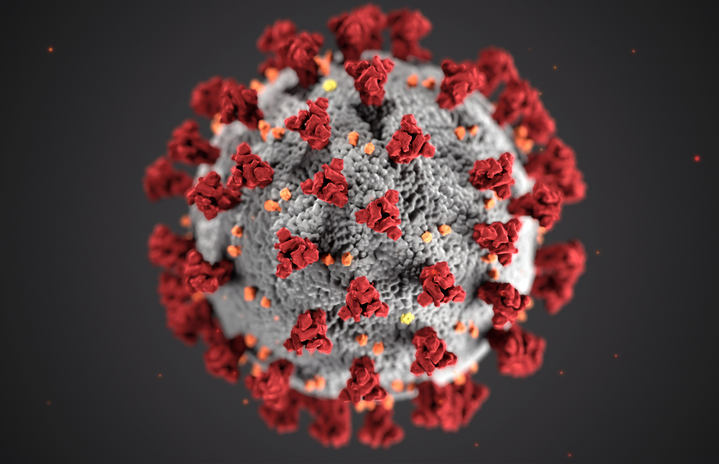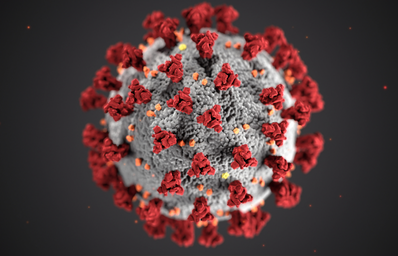In January, the virus was still limited to East Asia, mainly China. Fast forward to March, all countries in Europe, including Finland, has had to react to the changes the new coronavirus has brought.
At the time of writing (25 March 2020), the Finnish government is encouraging social distancing, that is, staying at home and avoiding unnecessary contacts with others as a way to slow the spreading of the virus. As explained by Tuija Lehto, Chief Physician at the Finnish Institute for Health and Welfare (THL), this process keeps the number of COVID-19 cases manageable under the current healthcare capacity, so that everyone who needs it will get care, whether for COVID-19 or other diseases. However, this so-called “flattening of the curve” will not get rid of the pandemic: in the end, enough people will have to become immune to the coronavirus and thus unable to contract or spread it. But vaccines that would give immunity seem a long way off. The slow spreading of the virus also means that it will take a long time for herd immunity to kick in. The Finnish Insitute for Health and Welfare estimated on 18 March that even with restricted contacts, such as in the current situation, 42 % of the population in Finland will eventually contract the coronavirus (with or without symptoms), which is not enough for herd immunity. “No country has an exit strategy,” says Mark Woolhouse, professor of infectious disease epidemiology at the University of Edinburgh, in an interview with BBC. “Waiting for a vaccine […] is not a strategy”. We may be living in special circumstances for a long time: the slowing down of the coronavirus means that the disease will stick around for six months, estimates the THL report, far longer than a national lockdown would be sustainable. That calls for a special kind of perseverance.
Unsurprisingly, the coronavirus outbreak has been a cause of fear. Even as we get this year’s winter flu, we might ponder whether “this is it”, and somehow the fear of coronavirus safety measures has resulted in toilet paper hoarding – which, by the way, should stop, because toilet paper will not save you and there are others who actually need extra rolls. The best way is to wash hands and follow the recommended guidelines regarding hygiene, travel and studies/work. Even though any coughing or sneezing symptoms means that you should stay home, some rational thought may help realizing that the slightly high temperature is just a flu or that the sneezing is just allergies, alleviating the panic. Young, healthy people who only contract the virus from a brief contact have lower likelihood of serious symptoms. On the other hand, people have valid concerns for the more vulnerable, that is, health care professionals in contact with COVID-19 patients, the elderly and those who belong to risk groups, such as people with cancer or diabetes.
Now, in Finland, the fingers have moved on to point at the elderly, as many Finnish people aged 70+ want to live life as usual, thus ignoring the recommendations of avoiding contact with others. The main issue is that contracted people over 70 are at a higher risk requiring health care resources, putting the capacity at stake, even if the patient themselves does not care for their wellbeing. Even though this precaution is fundamentally not based on ageism, that is what it has become in common parlance, a division into us and them. Based on the discourse going on for example in Twitter, younger generations express great exhaustion and even anger at grandpas and grandmas going about their business. Concern for elderly loved ones is natural, but anxiety should be tempered with understanding. For example, the special orders for citizens over 70 is experienced as punishment, especially for healthy people, seniors interviewed by Iltalehti explain (article in Finnish). Seventy-somethings are not necessarily old in a physical or psychological sense – they are energetic and want to keep themselves busy. Their own children giving them infantilizing lectures about staying in closed quarters is frustrating and not productive. Even elderly people are allowed to go outside, as long as they avoid contact with other people or with contraction-risk surfaces. At the University of Helsinki, all teaching has as a rule been changed to distance learning format. Exams, including entrance exams, are being reorganized. Exchange studies planned for the ongoing or upcoming months have been cancelled. Outside of studies and work, many of us probably had plans for a spring or summer trip, concert or another event that has now been cancelled. Cancellation of something you looked forward to sucks, there’s hardly a silver lining. The coronavirus has also had big financial impacts, with downhills in the stock market and big layoffs and financial hardships for entrepreneurs and freelancers. Only time will tell what – and how – government efforts can alleviate the affected people.
The best way to stay optimistic is to stay healthy and focus on the things that you actually can control yourself. Find ways to keep yourself busy, find hope and happiness in the little things, and not go too far into the rabbit hole of reading up everything social media has to say on COVID-19, because there is a lot of misinformation as well as distressing speculation and sensationalism. Thankfully we can still go outside for a walk or to relax in the park, as long as we don’t get too close to others. Even if you are on your own, you should not have to feel lonely in something that affects all. Video call a family member, organize a video call study session with a friend, join a book club on Twitter, buy a houseplant or some spring flower bulbs to care for – stay safe but don’t go stir-crazy! Her Campus Helsinki already shared some tips for caring for your mental health. Later this week, we will also share some tips on how to keep yourself entertained even during social distancing or quarantine!
This article reflects the coronavirus situation at the time of writing (24 March 2020), but with the situation constantly evolving, please follow the national news outlets. For up-to-date coronavirus guides for University of Helsinki students, you can read about the university’s safety measures and exceptional circumstances and follow the instructions given by the Finnish Student Health Service.



